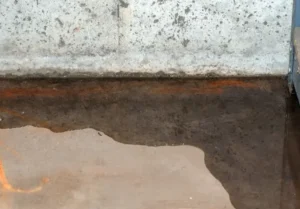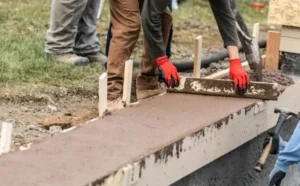Have you ever wondered how small maintenance tasks can make a big difference in keeping your home safe and cozy? Many homeowners delay basic upkeep because they think it can wait, but that often leads to bigger and more expensive problems later. Taking care of your home on a regular schedule helps protect your investment and gives you peace of mind. A safe and comfortable home supports the health and happiness of everyone living in it.
In this blog, we will share essential upkeep tips that will help you stay on top of maintenance and avoid common household issues.
Keep Your Roof and Gutters Clean
Your roof and gutters work together to protect your home from water damage, but they often get overlooked. Cleaning your gutters regularly prevents clogs that can cause water to back up and seep into your walls or foundation. You should also check your roof for missing or damaged shingles after storms.
Trim tree branches that hang over your roof to prevent damage from falling limbs and reduce the buildup of leaves. If you’re not comfortable climbing a ladder, hire a professional to clean the gutters and inspect the roof. Doing this at least twice a year, typically in the spring and fall, is ideal. Maintaining your roof and gutters can save you money and protect your family from hazards caused by water damage.
Schedule Routine HVAC Maintenance
Heating and cooling systems play a major role in your home’s comfort. Regular inspections keep them running efficiently and can extend their life. Schedule a professional tune-up for your furnace and air conditioner before the start of each heating and cooling season. During these visits, technicians check for worn parts, clean filters, and test the system’s performance. This helps prevent sudden breakdowns and keeps energy bills under control.
If you need heating system service and repairs, it’s best to call a certified technician instead of trying to handle it yourself. Problems with gas or electrical connections can be dangerous. Changing filters every one to three months also improves air quality and keeps your system from working harder than it should. By maintaining your HVAC system regularly, you can enjoy consistent temperatures and reduce the risk of costly emergency repairs.
Regular maintenance of your home’s HVAC system is crucial for ensuring a comfortable living environment. Scheduling routine inspections can prevent unexpected breakdowns and improve energy efficiency. If you’re considering an upgrade or need professional assistance, it’s wise to check availability with local experts who can provide tailored solutions for your specific needs. This proactive approach not only extends the lifespan of your system but also enhances indoor air quality, contributing to a healthier home. Remember, a well-maintained HVAC system is key to maintaining a safe and comfortable atmosphere year-round.
Check for Leaks and Water Damage
Water damage can be one of the most expensive problems a homeowner faces, but regular inspections help you catch issues early. Start by checking under sinks, around toilets, and behind appliances for any signs of leaks. Pay attention to water stains on ceilings or walls, which can indicate a roof or plumbing issue. Damp areas around your foundation can also be a sign of drainage problems outside.
Fix small leaks as soon as you find them. A dripping faucet may not seem urgent, but it can waste gallons of water and lead to larger plumbing issues. Inspect caulking around tubs, showers, and windows to make sure it hasn’t cracked or pulled away. Replacing damaged caulking takes just a few minutes and prevents moisture from getting into walls. Preventing water damage protects your home’s structure and stops mold from growing.
Test Safety Devices Regularly
Safety devices like smoke alarms and carbon monoxide detectors save lives, but they only work if they’re functioning correctly. Test each alarm once a month and replace the batteries at least once a year. Many homeowners choose to do this when they change their clocks for daylight saving time. Replace any smoke alarms older than ten years and carbon monoxide detectors older than seven.
You should also check fire extinguishers to make sure they’re fully charged and easily accessible. Keep one on every floor and in the kitchen. Finally, review your family’s emergency plan so everyone knows how to respond in case of a fire or gas leak. A few minutes of preparation can make a huge difference during an emergency.
Maintain Plumbing and Drains
Clogged drains and burst pipes can cause major damage, so routine maintenance is key. Use a drain cover in sinks and showers to catch hair and debris. Avoid pouring grease or oil down the drain, as it hardens and causes blockages. If a drain becomes slow, try using a mixture of baking soda and vinegar, followed by hot water, before turning to harsh chemical cleaners.
During colder months, insulate exposed pipes in basements, attics, and crawl spaces to keep them from freezing. If you plan to be away from home in the winter, set your thermostat to at least 55°F and ask a neighbor to check on your house. Regular plumbing inspections help you spot corrosion or weak spots before they become emergencies. Keeping your plumbing in good shape saves money and reduces stress.
Inspect Doors and Windows
Doors and windows that don’t close tightly can waste energy and make your home less comfortable. Check for drafts by feeling around the edges on a windy day. Weatherstripping and caulk can fill small gaps and are easy to apply yourself. For larger gaps or damaged frames, consider replacing the entire unit.
Clean and lubricate hinges and locks to keep them working smoothly. This also adds an extra layer of security. Replacing screens with holes can keep bugs out, and installing window locks can deter intruders. These simple steps improve your home’s comfort and safety while lowering energy costs.
In conclusion,keeping your home safe and comfortable doesn’t have to be overwhelming. Small tasks done consistently can make a big difference in how your home looks and feels. Each step you take protects your investment and makes daily life easier. Think about the areas in your home that could use attention, then make a plan to address them one by one. This approach helps you stay on top of maintenance without feeling rushed. By making upkeep a regular habit, you create a living space where you and your loved ones can feel secure and happy for years to come.
Also Read-Data Science Innovations Transforming the Fintech Landscape








